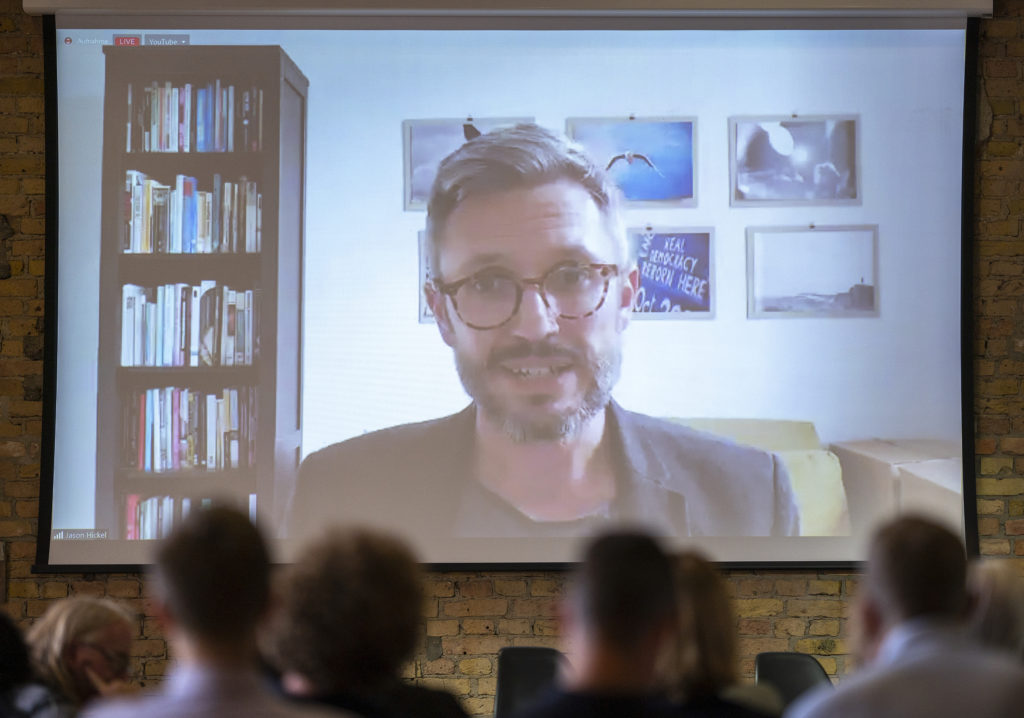






Innovation Lab
INNOVATION LAB
Do we need a whole new understanding of economic growth? What would be a real alternative? How viable are alternatives to GDP when it comes to measuring prosperity? These and other more fundamental challenges are what this section is about.
LATEST NEWS
Should We All Work Less?
In most economies, people today work as much as they did decades ago, despite increases in productivity. Why is that the case? We invited leading researchers to our New Paradigm Workshop to discuss the answers.
On the best/ worst of Mankiw
Peter Bofinger has caused quite a stir with his criticism of two of the most legendary economics textbooks - now he had the chance to argue with the author, Greg Mankiw himself, about the famous textbooks. The two were joined on the panel by Anna Reisch and Rudi Bachmann.
Robert J. Shiller on “Narrative Economics – How Stories Go Viral and Drive Major Economic Events”
The Nobel Prize-winning economist explains the idea behind his research on economic narratives and enumerates the main findings included in the book.
Beyond Growth: Towards a New Approach
The OECD has published a new report by Michael Jacobs, prepared for New Approaches to Economic Challenges (NAEC), September 2020.
Angrynomics - with Mark Blyth and Eric Lonergan
In the third edition of our Short Cuts we had the pleasure of hosting Mark Blyth and Eric Lonergan to talk about their new book "Angrynomics".
Measuring What Matters – A GDP Critic
Joseph Stiglitz describes the problematic focus on GDP when measuring the well-being of societies. He advocates for the use of a dashboard with individual indicators for each country.
A Market for Values and its role in reconciling capitalism and democracy, economics and ethics
In a guest contribution for Forum New Economy, Marco Senatore, Senior Civil Servant at Italy's Department of the Treasury discusses his notion of a market for values.
OECD (NAEC) Conference – Integrative Economics
On March 5-6, 2020 our partner organization NAEC at the OECD hosted a conference on “Integrative Economics”. The event featured epidemiologist Joshua M. Epstein, Nobel Prize laureate James Heckman and many others.
Robert Shiller on Narratives and the Next Paradigm
Narratives are still underrepresented in economic research. Robert Shiller wants that to change and points to the huge influences in economic developments fueled by narratives.
Robert Shiller on Epidemics of Narratives – and the Corona-Crisis
Nobel prize laureate Robert Shiller is the expert when it comes to narratives in economics. We had the chance to talk to him this monday in an exclusive Forum New Economy seminar about his new book, important narratives and the parallels to the current crisis.
Poking the purpose of paradigms: What might an economy be for, anyway
Maja Göpel, PRESENTATION to the 3rd New Economic Paradigm Workshop.













